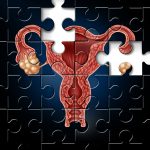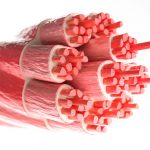Philosophy Can Change Our Relationship with Pain
NODE SMITH, ND
Dr. Sabrina Coninx from Ruhr-Universität Bochum and Dr. Peter Stilwell from McGill University, Canada, have investigated how philosophical approaches can be used to think in new ways about pain and its management. The researchers advocate not merely reducing chronic pain management to searching and treating underlying physical changes but instead adopting an approach that focuses on the person as a whole. Their work was published online in the journal Synthese.
It is not currently possible to treat chronic pain effectively in many cases. This has encouraged researchers from various disciplines to consider new approaches to pain and its management over recent years. “Pain research and clinical practice do not take place in a vacuum, but instead involve implicit assumptions regarding what pain is and how it can be treated,” says Sabrina Coninx, research assistant at the Bochum research training group Situated Cognition. “Our aim is to shed light on these assumptions and discover how we can think in new ways about pain and its management with the help of philosophical approaches.” In their work, the authors develop a holistic, integrative and action-oriented approach.
Viewing patients as a whole
In specific terms, they suggest three things: firstly, addressing pain should involve more than just looking for and treating underlying physiological changes. A holistic approach places the focus on patients as a whole and creates space for their experiences, concerns, expectations and narratives. The influence of socio-cultural practices in the generation of chronic pain should also be taken into account. For example, pain patients are often initially encouraged to protect themselves from injury and avoid activity, which may be helpful in the beginning but can contribute to chronification in the long run.
Secondly, according to the researchers, chronic pain should be understood as a dynamic process in which many different factors interact in a non-linear way. The initial cause of pain, for instance, is not necessarily the cause of its chronification and also does not need to be the most crucial factor in treatment. The complex interaction of subjective experience, expectations, learned behavioral patterns, neural reorganization, stigmatization and other factors therefore needs to be considered.
Focus on action possibilities
Thirdly, according to Coninx and Stilwell, patients should be encouraged to interact with their environment and identify possibilities for action. This is based on the assumption that chronic pain fundamentally changes the way in which patients perceive themselves and their relationship with their environment. Pain treatment could therefore involve helping the patient to increasingly notice positively associated and personally meaningful options for action and view themselves as capable of taking action again. There is then less focus on the body as an obstacle, and instead the patients pay more attention to how they can overcome limitations.
1. Sabrina Coninx, Peter Stilwell. Pain and the field of affordances: an enactive approach to acute and chronic pain. Synthese, 2021; DOI: 10.1007/s11229-021-03142-3

Node Smith, ND, is a naturopathic physician in Humboldt, Saskatchewan and associate editor and continuing education director for NDNR. His mission is serving relationships that support the process of transformation, and that ultimately lead to healthier people, businesses and communities. His primary therapeutic tools include counselling, homeopathy, diet and the use of cold water combined with exercise. Node considers health to be a reflection of the relationships a person or a business has with themselves, with God and with those around them. In order to cure disease and to heal, these relationships must be specifically considered. Node has worked intimately with many groups and organizations within the naturopathic profession, and helped found the non-profit, Association for Naturopathic Revitalization (ANR), which works to promote and facilitate experiential education in vitalism.










